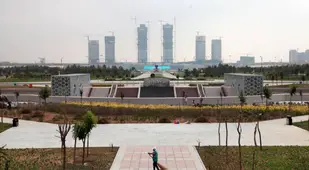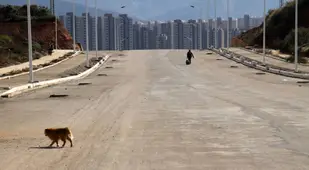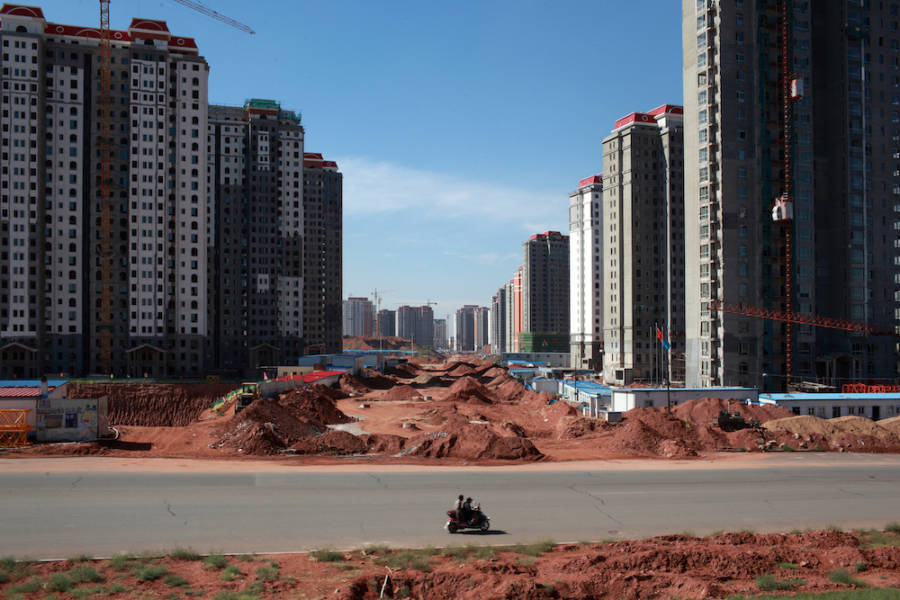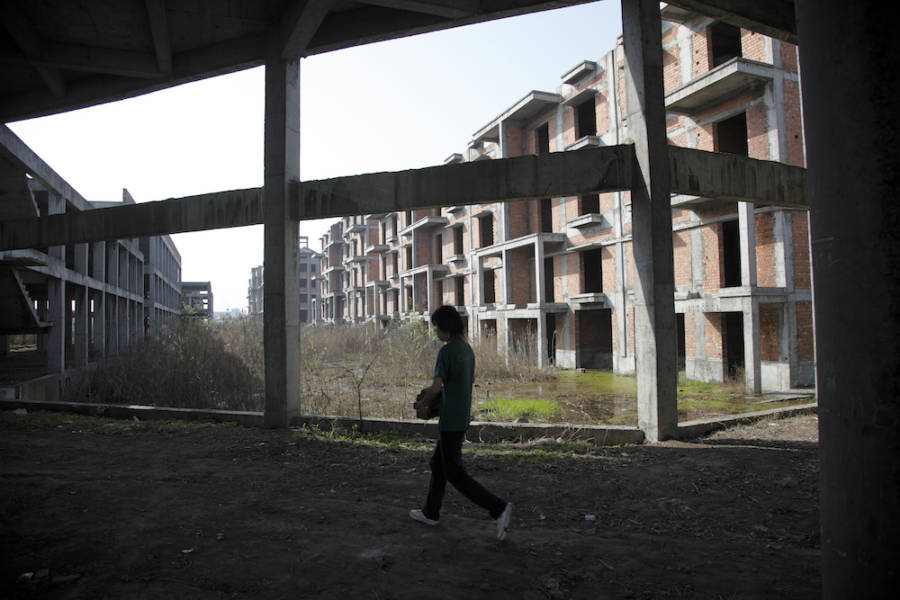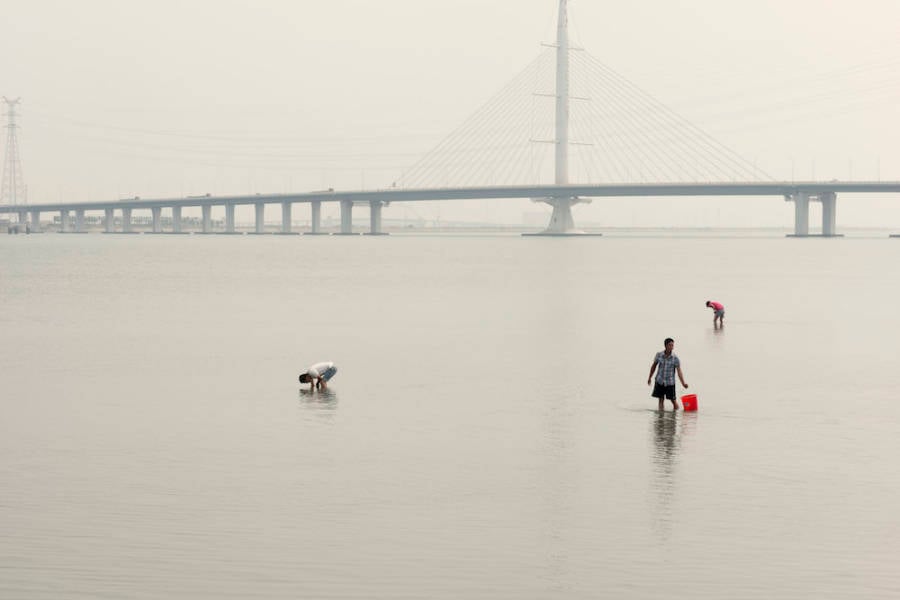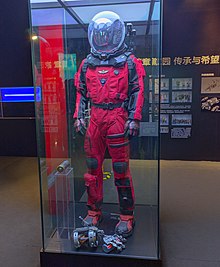Laughably cheap-looking CGI, crappy script... what could go wrong?

Creativity never thrives in a totalitarian shithole. Compare this with Sinkieland: once upon a time the Hollywood of SE Asia, now we have the occasional Jack Neo crap.

Fucked up Chinese as usual. Everything they do is a flop.
their big budget all-star cast fantasy movie was also a flop. without angmoh in the movie it would be a greater flop.
View attachment 63001
View attachment 63002
View attachment 63003
Don't be soo negative lah... The tiongs did do well also
The Wandering Earth - Wikipedia
The Wandering Earth (
Chinese: 流浪地球) is a 2019 Chinese
science fiction film directed by
Frant Gwo, loosely based on the novella of the same name by author
Liu Cixin. It stars
Qu Chuxiao, Li Guangjie,
Ng Man-tat,
Zhao Jinmai,
Wu Jing and Qu Jingjing. Set in the far future,
The Wandering Earth follows a group of astronauts guiding the Earth away from an
expanding Sun, while attempting to prevent a collision with
Jupiter. The film was theatrically released in China on 5 February 2019 (
Chinese New Year's Day),
[4] by
China Film Group Corporation, followed by North America and Australia on 8 February 2019.
The Wandering Earth 
Chinese theatrical release poster
Chinese 流浪地球
Mandarin liúlàng dìqiú
Directed by Frant GwoProduced by Gong Ge'er
Written by
- Gong Ge'er
- Yan Dongxu
- Frant Gwo
- Ye Junce
- Yang Zhixue
- Wu Yi
- Ye Ruchang
Based on The Wandering Earth (
Chinese: 流浪地球)
by
Liu CixinStarring
Music by
- Roc Chen
- Liu Tao (additional music)
Cinematography Michael Liu
Edited by Cheung Ka-fai
Production
company
China Film Group Corporation
Distributed by China Film Group Corporation
Netflix
(International)
Release date
(China)
Running time
125 minutes
Country China
Language Mandarin
English (Electronic Voice)
Russian
French
Budget $50 million
[1]Box office $699.7 million
[2][3]
The film grossed $700 millionworldwide, including $691 million in China.
[2] It became
China's second highest-grossing film of all time,
[5] 2019's seventh highest-grossing film worldwide,
[6] the second
highest-grossing non-English film to date, and one of the top 20
highest-grossing science fiction films to date. It has received generally positive reviews from critics, with
The Hollywood Reporter describing it as "China's first full-scale interstellar spectacular."
[7]Netflix has acquired the film's global streaming rights.
[6] The film was available to stream in various countries outside of China on 30 April 2019, by Netflix.
[8]
Plot
In the year 2061, the
Sun has aged and is about to turn into a
red giant, pushing the nations of the world to consolidate into the United Earth Government, a
world government, to initiate a project to move the
Earth out of the
Solar System to the
Alpha Centauri system, in order to preserve further
human civilization. Enormous thrusters running on
fusion power are built across the planet to
propel the Earth. Human population is reduced severely due to catastrophic
tides that occur after the planetary engines stop
Earth's rotation, and later as the planet moves away from the Sun, much of the surface is frozen due to lowered temperatures, forcing humans to live in vast
underground citiesbuilt adjacent to the engines.
At the beginning of the film, Liu Peiqiang, a Chinese astronaut, promises to his son Liu Qi of his eventual return before his mission to a space station that will help Earth navigate as it moves out of the Solar system, and hands guardianship of his son over to his father-in-law Han Zi'ang.
Seventeen years later, Liu Peiqiang's mission is about to end and he will soon return to Earth. To celebrate the
Chinese New Year, an adult Liu Qi brings adopted sister Han Duoduo on a trip to the surface in a truck they stole using Han Zi'ang's clearance as a trucker. They are arrested, meet a fellow prisoner named Tim, and are joined by Han Zi'ang after an unsuccessful attempt to bribe the
prison warden into releasing them.
As Earth passes by
Jupiter to make use of
gravity assist, a "gravitational spike" causes devastating
earthquakes that disable many thrusters across the globe and pull the Earth dangerously close. The four escape amidst the chaos and attempt to make their way out in Han Zi'ang's truck, but the truck is requisitioned for a rescue mission by the military rescue team CN171-11; they are to transport a lighter core, an engine component, to restart the planetary thruster engine in
Hangzhou, supervised by soldiers led by Wang Lei. In the remnants of
Shanghai, they lose their vehicle, and while transporting the component up the ruins of
the Shanghai TowerHan Zi'ang is killed. With news that the Hangzhou thruster was fully compromised and the city was completely destroyed, the group is downcast. However they later find a new vehicle where the on-board engineer, Li Yiyi, convinces them to transport a lighter core to repair a larger planetary thruster engine in
Sulawesi.
In space, Liu Peiqiang discovers that MOSS, the
artificial intelligence commanding the space station, has directed it to escape rather than to assist the humans on Earth. He breaks out of forced hibernation and attempts to stop the space station along with Russian
cosmonautMakarov, who is killed by the spacecraft's automated security measures. Liu Peiqiang arrives in the control room, but his clearances are revoked due to his acts of insubordination and he can do little to override the escape process.
Liu Qi's group arrive at Sulawesi to find that the engine was already fully restored. Globally, most of the planetary thrusters have been repaired as well. However, the gravitational pull from Jupiter is too great and Earth continues to move toward it, approaching the planet's
Roche limit. Liu Qi, inspired by recollections of his father's explanation of the thrusters' mechanics as a child, proposes to ignite Jupiter's
hydrogenabundant atmosphere to blow Earth away. Li Yiyi proposes to concentrate the Sulawesi engine's power to fire a beam high enough to ignite Jupiter. The group overcome various challenges, such as renewed
aftershock tremors that injure several members, and are able to mostly reconfigure the engine to carry out the plan, however they are not able to push the
firing pin of the engine to ignite it.
Liu Peiqiang, learning of this, is able to persuade the United Earth Government to use its communication channels to call assistance for the party at Sulawesi, even though MOSS reveals that the solution being attempted was already proposed by others and has no chance of success based on probability calculations. Other rescue and repair parties arrive and the engine is fired up, but it falls short of being able to ignite the hydrogen. Liu Peiqiang proposes intentionally flying into exhaust jet and detonating the space station's propellant to ignite Jupiter's hydrogen; MOSS disagrees as the station is the back up plan should the Wandering Earth project fail. After disabling MOSS using a fire started with
vodka that Makarov smuggled on-board, Liu Peiqiang pilots the space station into the exhaust jet of the planetary thrusters, sacrificing himself as the ignition succeeds. Earth is saved from destruction and continues towards the destination star system.
As the film ends, Liu Qi recounts and envisions the stages of Earth's migration, a process taking 2,500 years and still bound with uncertainty, in a hopeful tone.
Cast
- Qu Chuxiao as Liu Qi (刘启)
- Li Guangjie as Captain Wang Lei (王磊)
- Ng Man-tat as Han Zi'ang (韩子昂)
- Zhao Jinmai as Han Duoduo (韩朵朵)
- Wu Jing as Liu Peiqiang (刘培强)
- Arkady Sharogradsky as Makarov
- Mike Sui as Tim
- Qu Jingjing as Zhou Qian (周倩)
- Zhang Yichi as Li Yiyi (李一一)
- Yang Haoyu as He Lianke (何连科)
- Li Hongchen as Zhang Xiaoqiang (张小强)
- Yang Yi as Yang Jie (杨捷)
- Jiang Zhigang as Zhao Zhigang (赵志刚)
- Zhang Huan as Huang Ming (黄明)
Production
Development
Frant Gwo was a big fan of the
science fiction genre and was first influenced by
James Cameron's
Terminator 2: Judgment Day which inspired him to become a director in the genre. He spent the following years studying the genre to direct a
science fiction film.
[9]
Pre-production
In order to
establish a rigorous setting, Gwo invited four scientists from the
Chinese Academy of Sciences (CAS) to act as consultants.
[10] The film's three thousand
concept mapsand more than eight thousand sub-mirrors were elaborately created by a conceptual art team of three hundred people over a period of 15 months.
[11]
Filming
Spacesuit used in the film
Principal photography started on 26 May 2017, in
Qingdao, a seaside city on
north China's
Shandong province,
[10] and wrapped on 27 September 2017.
[12]
Weta Workshop made the film's highly specialized spacesuits, exoskeletons and weaponry.
[13][14]
Wu Jing was asked by Frant Gwo to play a cameo role in the film, later he found out that Gwo cast him into a leading role. When he was told that the production had run into financial trouble, he gave up his remuneration and invested in the film to help it continue, for which he was given special thanks in the credits of the film; and praised by Frant Gwo as father of "little dirt ball" (nickname of the film) .
[15][16]
Post-production
The
visual effects of the film were made by
Base FX,
Bottleship VFX, Dexter Studios, Macrograph, More VFX,
Pixomondo and Black Nomad.[
citation needed]
"My film was successful but I don't want to speak about only one successful film and China's sci-fi movies could be find a new way for being better in 2019" The Movie director, Frant Gwo told to the China.org.cn
[17] Liu Cixin, the author of the original novella said to state broadcaster
China Central Television, "Chinese studios have no interest to invest in sci-fi films. US sci-fi film audiences have trust but this trust between audiences and China's sci-fi movies doesn't exist yet and this is the main difference between Chinese and US sci-fi films." He said "It is a challenge because this trust must build between producers, investors, and the audience until people have faith in a Chinese sci-fi movie."
[17]
Music
The film's music was composed by Roc Chen (阿鯤),
[18] and Liu Tao (刘韬) as an additional composer.
[19] The film's music was performed by the British
Royal Philharmonic Orchestraand conducted by Roc Chen at the
Abbey Road Studios.
Differences between the film and the novel
The film shares the same basic setting as the novella, but the plot has significantly changed. In the novella, the protagonist was born after the Braking Era ended, the Earth had stood still and begun its escape. It focused on the social impact and conflicts of logic and emotion, instead of the crisis depicted in film. Moreover, the Earth passes Jupiter's orbit without experiencing the key crisis of the film. There were components of the book that did not end up in the film such as: a long-lasting debate between two categories of escape plan - a generation spaceship or a planetary engine; a large and disturbing debate among mankind concerning whether the prediction was true that the sun would undergo a
helium flash and devastate the Earth, and whether the United Earth Government had cheated mankind by organizing and carrying out the "Wandering Earth" project. In the movie there is only a minor depiction of this in the ending narration where protestors are holding signs claiming the "sun will not have helium flash" and MOSS’ final word is a reference to the top leader of United Earth Government from the novel.
Release
On 25 December 2018, the first official trailer for the film was released at the
China Aerospace Museum in
Beijing along with a teaser poster.
[20]
On 30 January 2019, Beijing-based distributor
China Media Capital (CMC Pictures) announced that it has secured the international rights and is planning a sizable North American release on 8 February. The company will open the film in 22 cities in the U.S. and three in Canada, as well as throughout Australia and New Zealand.
[21]
On 20 February 2019, it was announced that
Netflix acquired the distribution rights to stream the film internationally. The film was expected to be available to stream globally on Netflix, outside of China, on 30 April 2019,
[22][23] however the film was later promoted on the Netflix facebook page as being released on 6 May 2019.
[8]
Reception
Box office
The Wandering Earth released over the
Chinese New Yearholiday season, and earned more than CN¥2 billion (£232 million) in six days, setting a new record for a Chinese film.
[17][24] It also set the record for the highest-grossing Chinese film on
IMAX.
[25] Second weekend box office dropped 53%, on par with all other currently playing films post Chinese holiday season, as expected.
[26] The film's total gross in China stands at CN¥4.655 billion.
[27]
Internationally, it topped the worldwide box office with a three-day opening weekend gross of $172,718,000, and had a six-day opening gross of $289,090,290.
[28] The film has grossed $693,371,204 in China, $5,875,487 in the United States and Canada, and $1,575,366 in other territories, for a worldwide total of $700,822,057.
[2][3]
Critical response
On the review aggregator Rotten Tomatoes, the film holds an approval rating of 74% based on 31 reviews, with an average rating of 6/10.
[29] The film received a generally positive reception in China. Several state-run media publications have given the film a positive review.
[30][31] Specifically, Zhong Sheng, in the
People's Daily, writes that the film is "not superheroes saving the world but mankind changing their destiny together."
[31] On
Douban, during the initial release, the movie had a 8.5 rating; then suddenly fell to 7.9 as of the early morning of February 23 in China. It was reported some reviewers were offered money for posting negative reviews on the rating platform. Douban banned nearly 50 users for violating guidelines and thousands of comments were removed.
[32] The rating finally stabilized at 7.9. Some commenters, specifically on Douban, who give the film negative reviews were accused to be in bad faith or
trolling,
[32][33] but the accusations are disputed.
[34]
Tasha Robinson of
The Vergedescribes the film as "rich, gorgeous, and goofy".
[35] Travis Johnson, of
Flicks.com.au gave the film four out of five stars and, whilst criticizing the film for its lack of character development, praised the visuals and called it the best science fiction film of 2019.
[36] Ben Kenigsberg in
The New York Times wrote that the film is "as awash in murky computer imagery, stupefying exposition and manipulative sentimentality as the average Hollywood tentpole", but that it proved that the Chinese film industry "can hold its own at the multiplex."
[37]Simon Abrams of
RogerEbert.com gave the film three and a half stars out of the four, saying that the experience was "visually dynamic, emotionally engaging."
[38] In the United States the reviewer aggregate site
Metacritic gave an overall Metascore of 57 signifying mixed to average reviews based on eight critics.
[39]











